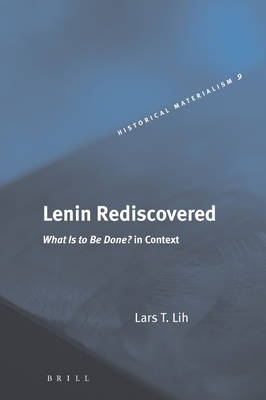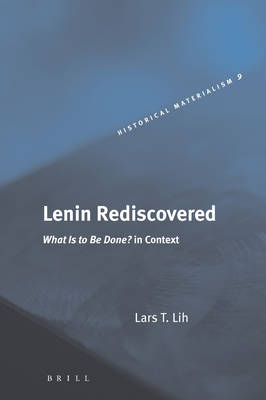
- Afhalen na 1 uur in een winkel met voorraad
- Gratis thuislevering in België vanaf € 30
- Ruim aanbod met 7 miljoen producten
- Afhalen na 1 uur in een winkel met voorraad
- Gratis thuislevering in België vanaf € 30
- Ruim aanbod met 7 miljoen producten
Zoeken
Omschrijving
Lenin's What is to Be Done? (1902) has long been seen as the founding document of a 'party of a new type'. For some, it provided a model of 'vanguard party' that was the essence of Bolshevism, for others it manifested Lenin's élitist and manipulatory attitude towards the workers.
This substantial new commentary, based on contemporary Russian- and German-language sources, provides hitherto unavailable contextual information that undermines these views and shows how Lenin's argument rests squarely on an optimistic confidence in the workers' revolutionary inclinations and on his admiration of German Social Democracy in particular. Lenin's outlook cannot be understood, Lih claims here, outside the context of international Social Democracy, the disputes within Russian Social Democracy and the institutions of the revolutionary underground.
The new translation focuses attention on hard-to-translate key terms. This study raises new and unsettling questions about the legacy of Marx, Bolshevism as a historical force, and the course of Soviet history, but, most of all, it will revolutionise the conventional interpretations of Lenin.
This substantial new commentary, based on contemporary Russian- and German-language sources, provides hitherto unavailable contextual information that undermines these views and shows how Lenin's argument rests squarely on an optimistic confidence in the workers' revolutionary inclinations and on his admiration of German Social Democracy in particular. Lenin's outlook cannot be understood, Lih claims here, outside the context of international Social Democracy, the disputes within Russian Social Democracy and the institutions of the revolutionary underground.
The new translation focuses attention on hard-to-translate key terms. This study raises new and unsettling questions about the legacy of Marx, Bolshevism as a historical force, and the course of Soviet history, but, most of all, it will revolutionise the conventional interpretations of Lenin.
Specificaties
Betrokkenen
- Auteur(s):
- Uitgeverij:
Inhoud
- Aantal bladzijden:
- 888
- Taal:
- Engels
- Reeks:
- Reeksnummer:
- nr. 9
Eigenschappen
- Productcode (EAN):
- 9789004131200
- Verschijningsdatum:
- 1/12/2005
- Uitvoering:
- Hardcover
- Formaat:
- Genaaid
- Afmetingen:
- 163 mm x 242 mm
- Gewicht:
- 1682 g

Alleen bij Standaard Boekhandel
+ 708 punten op je klantenkaart van Standaard Boekhandel
Beoordelingen
We publiceren alleen reviews die voldoen aan de voorwaarden voor reviews. Bekijk onze voorwaarden voor reviews.








